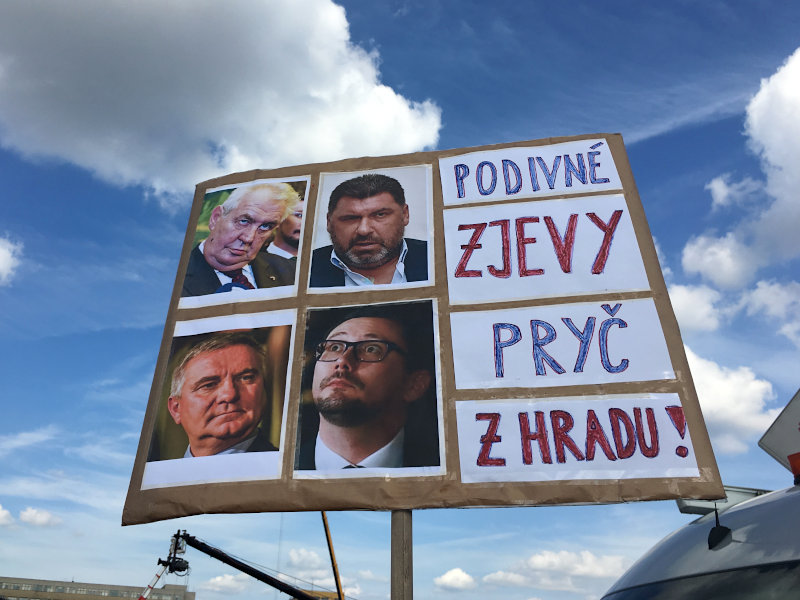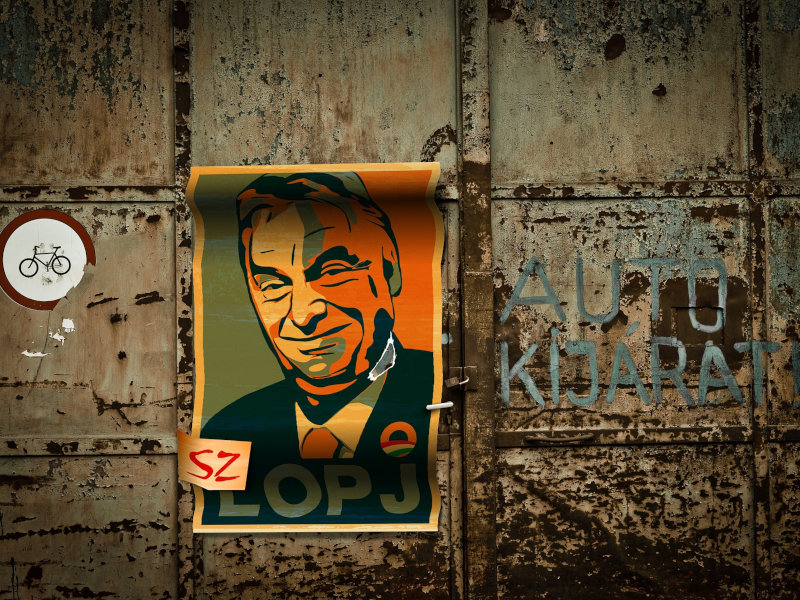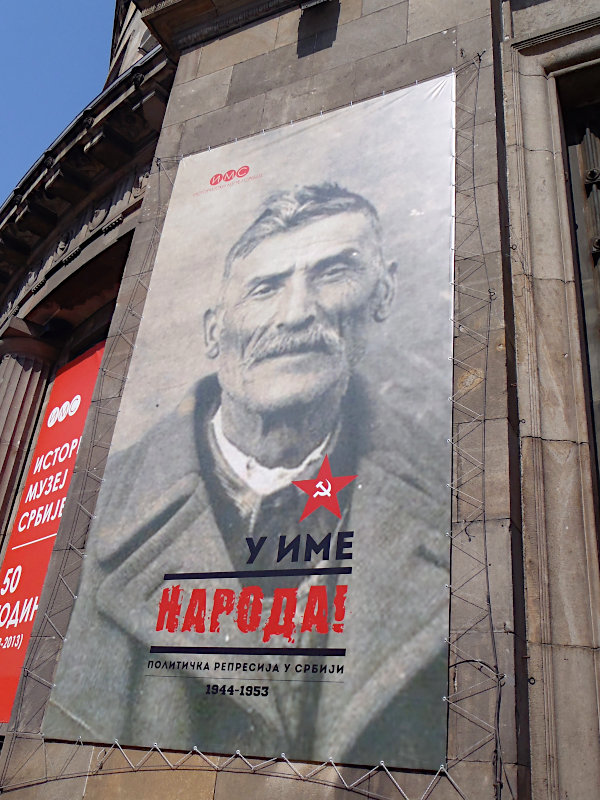VICTIMEUR
The New Politics of Victimhood in Eastern Europe
Overview
Notions of historical and collective victimhood has become one of the main battlefields of East European populists. Imagery of historical and war suffering, grievances directed at the ‘West’ to frequent references to past oppression and injustice has increasingly been deployed by right-wing populists relying on an augmented (and exclusivist) sense of national pride. Various notions of collective victimhood have been evoked in elections, moments of political upheaval and social change. Wartime suffering, historical loss of territories, political and economic marginalization by international (and ‘Western’) organizations and oppression under past communist regimes belong among some of the most contentious and frequently invoked sources of victimhood across Eastern Europe. Engaging in what some scholars call memory wars, populism has turned to history as an arena to take over in their sweeping populist projects. Although ideational and historical sources of populist discourse in the region have often been overlooked by analysts stressing the primacy of socioeconomic drivers of populism, this project enquires into the ideational underpinnings of populism in the region. It studies both the ideational content of populism vis-à-vis various forms of victimhood as well as its social base.
This project thus asks:
- How has victimhood featured in politics and political competition in postcommunist Europe in the past two decades?
- How and why has it featured in the populist rulebook? And how has it resonated?
This project answers these questions by focusing on political and historical constructions of victimhood in the post-communist and post-conflict Europe where sources of historical and conflict-related victimhood are ample and diverse. There, narratives of victimhood have been increasingly applied to justify (often illiberal) policies (e.g. asylum), demark power relations (e.g. marginalize political rivals) and legitimize political decisions (e.g. in foreign policy). Starting with providing a wider conceptualization of victimhood and its role in populism, the project aims to produce a deeper understanding of the various roles of victimhood – as a unifying bond as well as a polarizing identity definer. It then studies how victimhood featured in politics and political competition of this region, specifically looking at the Czech Republic, Hungary and Serbia, in the past 20 years and introduces a novel understanding of social and political victimhood linked to collective grievances that foreground identities and a sense of ontological security.
Objectives
This project has three key specific research objectives:
1) To conceptualize victimhood narratives, notions and understandings
Victimhood remains a contested term (there are often no directly translatable equivalents in local languages). The project offers a future theoretical basis for the study of victimhood varieties. It examines how the term – and assumptions associated with it – have varied across different contexts. For victims, it is assumed to create a sense of identity. For groups, victimhood may serve as justification for policy demands while political actors may use it to legitimize their regimes or policies.
2) To empirically study how victimhood plays out in politics of postcommunist Europe
The main aim is to focus on specific moments of political contestation (e.g. the migration crisis, covid-19 pandemic, elections) to study how victimhood featured in political outcomes in Eastern Europe. By investigating how victimhood was applied, the project allows for an assessment of the effects of victimhood politics.
3) To conduct cross-case comparison to tease out generalizations about inferences in country cases
The project analyses how victimhood narratives have influenced the wider dynamics of transitions and political outcomes in a comparative matter across the studied cases, each of which represents a different type of a populist regime.
Methods
This project uses primarily qualitative methods (document and media analysis, interviews and focus groups). However, it also applies quantitative methods of data collection (surveys). The comparative method will be applied in the analysis of three different cases: the Czech Republic, Hungary and Serbia that each represent a different type of a populist regime.

The Czech Republic was from 2017 to 2021 under a firm grip of a technocratic populist Andrej Babiš where victimhood politics featured in political discourse only marginally and has been linked to economic issues. However, other aspects of victimhood politics have come to the fore, such as how the country has dealt with its communist legacy.

Hungary has since 2010 gradually turned into an authoritarian electoral democracy where perceived historical injustice plays an important role in justifying foreign and social policy. The main focus has been on alleged Western oppression and anti-Muslim sentiments, linked to historical suffering.

In Serbia, an authoritarian ethnopopulist regime has revamped conflict-related victimhood narratives that have resonated across the population, foregrounding victimization of Serbs and omitting Serbian responsibility in any of the recent conflicts.
Data collection forms and important part of this project. It will consist of interviews, focus groups and online surveys.
For the conceptualisation of the various regimes, I will also utilise the Chapel Hill Expert Survey, European Value Survey and other existing surveys to assess the social base for victimhood claims.
Outputs
Academic outputs
- Barton Hronešová, Jessie. ‘The Uses of Victimhood as a Hegemonic Meta-Narrative in Eastern Europe’, «Journal of Contemporary European Studies», published 15 September 2022: https://doi.org/10.1080/14782804.2022.2110456
- Barton Hronešová, Jessie. ‘The Law Comes First?’ The Dynamics of Victims’ Redress in Bosnia and Herzegovina’, «Southeast European and Black Sea Studies», published 29 June 2022: https://doi.org/10.1080/14683857.2022.2093562
Events and media
- 10 January 2023, AlJazeera Interview [BOS]
- 5 January 2023, Balkan Insight, “We’re the Victims”: How Populists Use Fear and Pride to Mobilise Support
- 5 December 2022, A Diplomatic Option To Avoid Endless War In Ukraine, Policy paper with Dirk Moses
- 19 October 2022, The Current Politics of Victimhood in the Former Yugoslavia
- 6 March 2022, Published op-ed on Ukrainian refugees
- 23 February 2022, University of Oxford, Bosnia and Herzegovina: Has the International Community Lost the Plot? Chaired a seminar
- 2 February 2022, Understanding the Current Warmongering in Bosnia and Herzegovina
- 2 December 2021, Open Balkans and/or European integration: An answer or a diversion? Discussion with Dritan Abazovic (Deputy Prime Minister of Montenegro); Albin Kurti (Prime Minister of Kosovo); Zef Mazi (Albania's Chief Negotiator with The European Union); Bujar Osmani (Minister of Foreign Affairs, North Macedonia)
- 24 November 2021, New Books Project Interview podcast on my book The Struggle for Redress. Victim Capital in Bosnia and Herzegovina
- 21 November 2021, Oslobodjenje Op-Ed (in English and Bosnian), Neither "elites" nor international actors will save Bosnian democracy
- 20 November 2021, n° 1 interview on the role of the UK in Bosnia and Herzegovina [BOS]
- 4 November 2021, commented on an article on The National News on the situation in Bosnia and Herzegovina
- 26 October 2021, Vaclav Havel’s Contested Legacy in Central Europe. Discussion with Timothy Garton Ash, Jacques Rupnik, Michal Simecka

